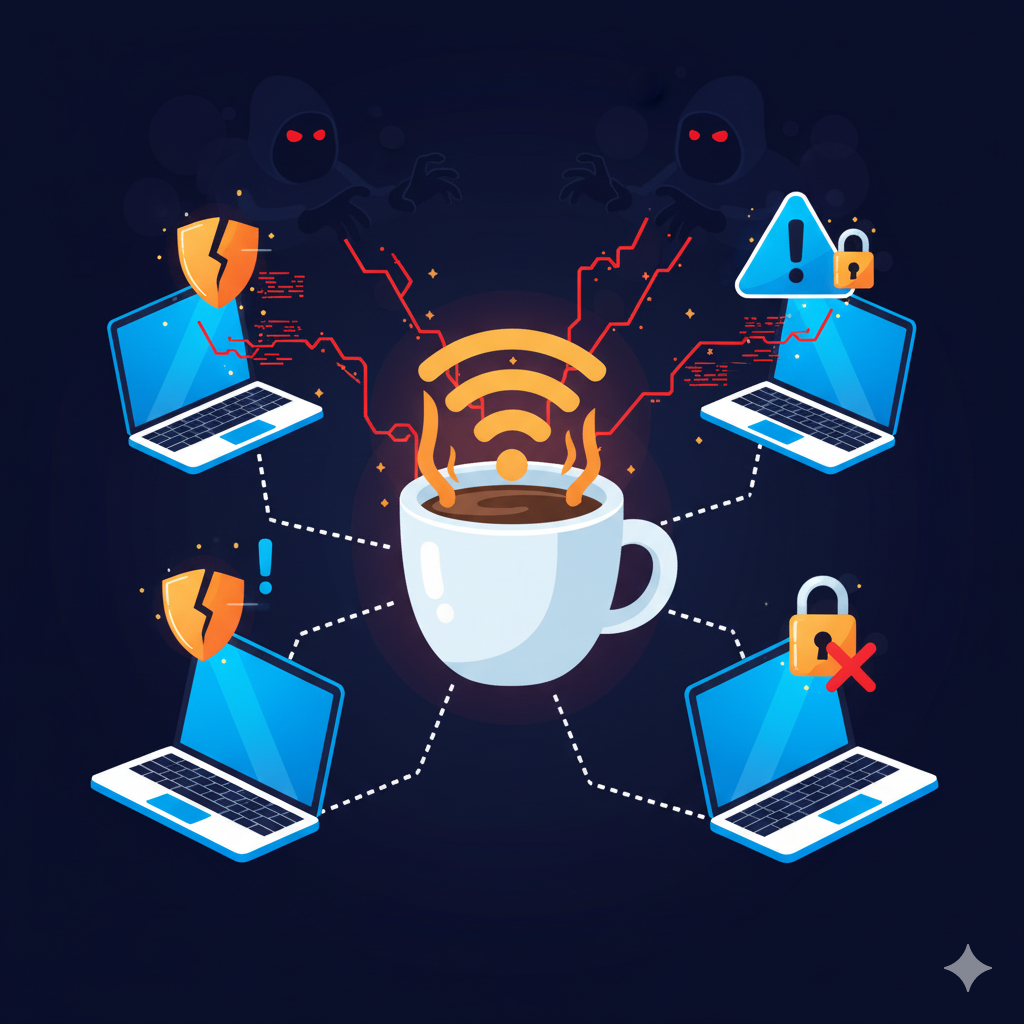Public Wi-Fi
The Dangers of Public Wi-Fi
Public Wi-Fi is available in various public places, offering internet connectivity. It's important to note that when using public Wi-Fi networks, personal data such as private photos, emails, documents, and login credentials can be exposed. These facts highlight the issue that not only do many applications fail to encrypt data during transmission, but also many users continue to utilize unsecured public Wi-Fi networks.
Public Wi-Fi Key Terms
Secure Socket Layer (SSL)
The standard technology used to secure internet connections and safeguard sensitive data transmitted between two systems.
Networks
Consists of two or more devices linked to share resources, exchange files, or allow electronic communications.
Hackers
The main security threat to public Wi-Fi networks is posed by hackers. They have the ability to position themselves between you and the network. Instead of connecting directly to the network and communicating with it, you end up connecting and sending information directly to the hacker.
Once in this position, he hacker gains control over what information passes through the network and what they choose to exploit.
Hackers can also leverage public Wi-Fi connections to distribute malware. If you have file-sharing enabled on your device, hackers can easily inject infected software onto your computer. Malware can then be used to gather more user information, potentially leading to data breaches.
In some cases, hackers even compromise the connection point itself, causing pop-up windows and prompts to appear during the connection process, tricking users into entering their email login credentials.
It's worth noting that 51% of people use the same passwords for both work and personal accounts. This means that if a hacker gains access to one set of login details, they could potentially compromise other accounts as well.
Protection on Public Wi-Fi
Engaging in online banking or shopping using unsecured public Wi-Fi networks carries inherent risks. Secure networks and servers employ encryption to keep your personal information safe. Unfortunately, many free or public Wi-Fi hotspots lack this encryption layer.
When a network lacks security measures, hacker can intercept and eavesdrop on the data your device sends and receives, potentially capturing sensitive information like credit card details.
Protecting Yourself
Virtual Private Network (VPN)
Use a VPN when connecting to a public Wi-Fi network.
HTTP vs. HTTPS
Make sure the websites you visit start their URL with HTTPS, not just HTTP.
Limit Sensitive Information
For enhanced security, use trusted and secure websites.
Limit File-Sharing
When sharing files, you are granting other individuals access to the files stored on your device.
Protecting Your Devices
Firewalls
A firewall enhances the safety of devices on a network and protects them from malicious attacks.
Antivirus
An Anti-Virus program is designed to prevent, remove and protect devices from malware.
Implementing Updates
The purpose of an update or security patch is to cover the security holes that a major software update or initial software has missed.



